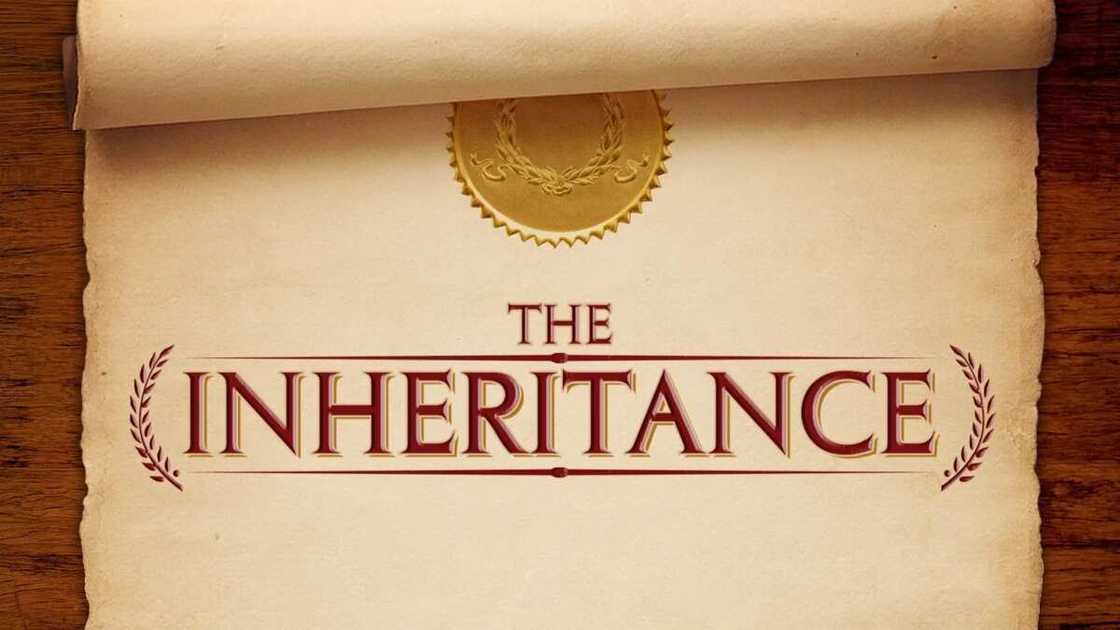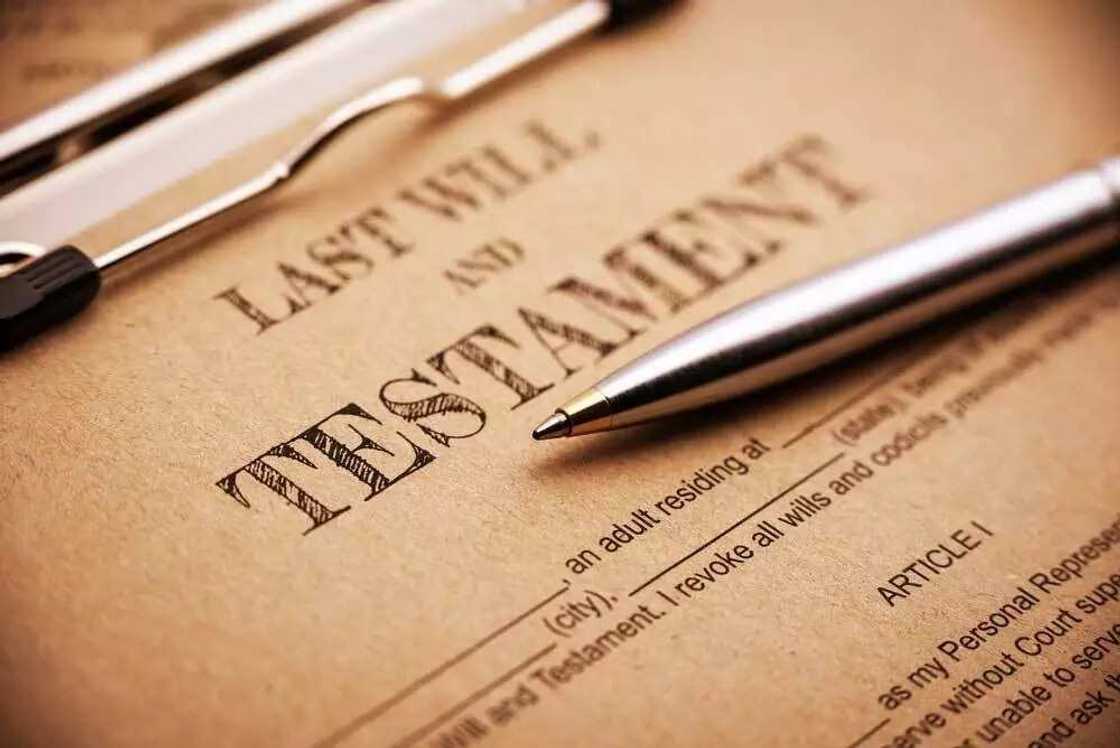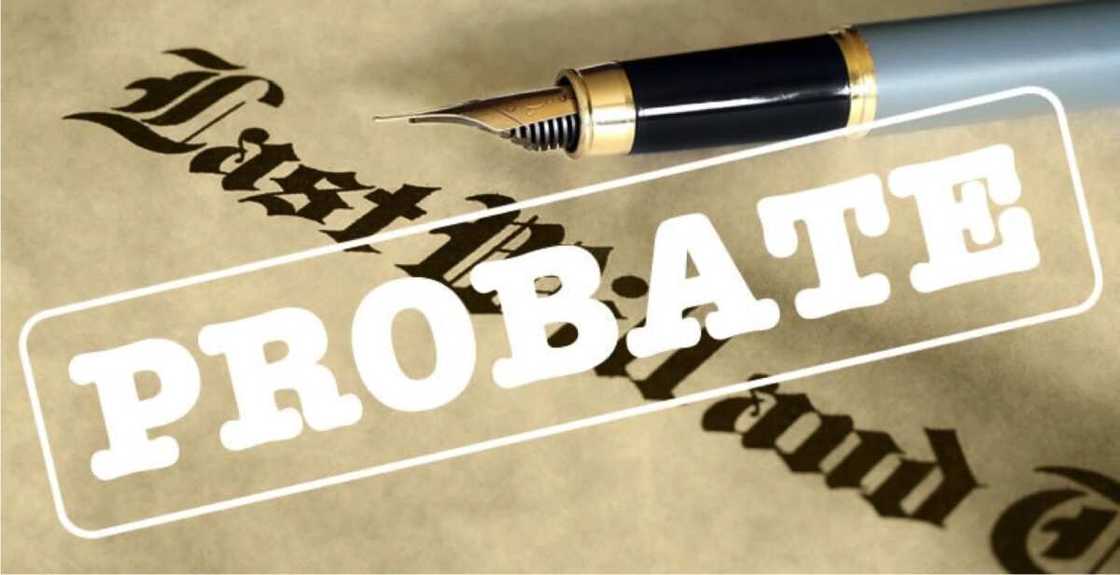Inheritance documents in Nigeria
What do you know about inheritance documents in Nigeria? Do you know how to get your inheritance in case something happens to people close to you? If you want to learn more about this topic, then let us help you with that. We will tell you what we know about getting your hands on your inheritance and even talk a little bit about the infamous Nigerian inheritance scams. Check it out!

Things you should know about obtaining documents for inheritance
You might not know this, but things are not all that simple with inheritance in Nigeria. Before you are able to get a hold of your deceased loved one’s property, you will have to jump through a lot of legal hoops.
The whole thing is ridiculously complicated (as most legal matters are), so we are going to give you a quick rundown of the procedure of getting your inheritance, including all the documents you might need for that. If you want to read about the whole procedure in detail and with professional terms, click here or here.
In Nigeria, if you want to take over someone’s estate (meaning property), you need to acquire either a Grant of Probate or the Letter of Administration. The first document is issued to executors named in the will of the deceased person, while the second one is issued to administrators in case there is no will or it is invalid.
As you can see, even being named in someone’s will does not give you complete freedom to do whatever you want with their property after their death. Without one of the aforementioned documents, anything you do with the estate would be illegal, and you might get in big trouble.
But how do you actually acquire these documents? Let’s find out.
Procedure and documents required for inheritance

Getting a Grant of Probate or a Letter of Administration can be a real hassle. As we are not authorised lawyers, we cannot give you legal advice on how to get them, but we can outline the general procedure, mentioning only the most important parts. That said, we recommend you to contact a professional for a more detailed plan of action. Therefore, consider this a preview of what is to come.
As we have established, if there is a valid will, a person or persons that are named executives need to obtain a Grant of Probate 7 days after the death of the deceased. In order to get it, they need to file a written application and attach the following documents:
- Will of the deceased;
- The deceased person’s death certificate;
- Declaration on oath by executor(s);
- Justification of sureties;
- Bond to cover any existing debts and liabilities of the deceased;
- Inventory of immovable and movable property of the deceased;
- Passport photographs of the executor(s) and their valid identity documents.

READ ALSO: Advantages and disadvantages of land use decree in Nigeria
Once these documents are gathered, the Probate Registrar has to review them. If all is in order, the Grant of Probate is issued to the executor(s), and they can then deal with the estate of the deceased as stated in the will. If the will also names beneficiaries, then it is the executor(s)’ duty to distribute the assets among the beneficiaries
If there is no will, or it has been deemed invalid, interested persons need to file for the Letter of Administration. However, not everyone is entitled to it. Here is the list of people who can file for it in the order of priority:
- Surviving spouse of the deceased;
- Deceased person’s children or grandchildren (if their parents died during the lifetime of the deceased);
- Parent(s) of the deceased;
- Full sibling(s) of the deceased;
- Half sibling(s) of the deceased;
- Grandparent(s) of the deceased;
- Aunt(s) and/or uncle(s) of the deceased;
- Creditors of the deceased (if there are any);
- Administrator-General.

As you can see, the priority is given to the closest family members, and in case the deceased has no family whatsoever, their estate goes to the Administrator-General, who will have to deal with it. Priority is essential, as the deceased person’s brother (for example) cannot become an administrator if the children of the deceased are still alive and well (and are of age).
Unlike with the Grant of Probate, the application for the Letter of Administration can only be filed 14 days after the death of the deceased. Moreover, the applicants have to publish the information about their application in a local newspaper or through a similar channel, so that people can protest this application if they do not agree with it. This is meant to inform the public about the death of the member of their community and prevent any kind of inheritance fraud.
If there have been no objections to the application within 8 days since its publication, you can proceed with your application. In order to obtain the Letter of Administration, you would first need to prove that no executor has been appointed by the deceased or that they are otherwise unable to fulfil their duties. If you are successful at that, you will also need to provide the following documents:

- The deceased person’s death certificate;
- Marriage certificate of the deceased and their spouse;
- Passport photographs of proposed administrators and their valid identity documents;
- Oath of administration;
- Administration bonds;
- Justification of sureties;
- Bond to cover any existing debts and liabilities of the deceased;
- Inventory of immovable and movable property of the deceased;
- Statutory Affidavit of the next of kin;
- Schedule of funeral expenses;
- Bank certificates of the deceased.
If the court deems you worthy, you will be granted the Letter of Administration, which you can then use to take control over the estate of the deceased.
Inheritance scams

As you can see, getting your inheritance is not an easy feat. Which is why you should be extra suspicious when you get an e-mail claiming that your rich distant relative has recently died, and that you can receive their estate for a modest fee.
If you have been on the Internet for long enough, you might have heard of the Nigerian 419 inheritance scams. People across the world received e-mails that informed them of a giant fortune waiting for them in Nigeria that could be easily accessed by ‘covering the associated fees’. Most people recognised them as frauds, but many lost a lot of money because of their gullibility.
Therefore, if you ever get a letter asking for money or even personal information with a promise of riches, be smart. Even if they send you some craftily made fake inheritance documents, do not do anything without involving your lawyer first. This has been a PSA about how not to get tricked by an old scam.
All that said, that is all we can tell you about getting your inheritance in Nigeria. It is definitely not the easiest process, but nothing involving bureaucracy is ever easy. So go ahead, consult your lawyer and good luck getting that inheritance!
READ ALSO: Legal requirements for starting a business in Nigeria
Source: Legit.ng







